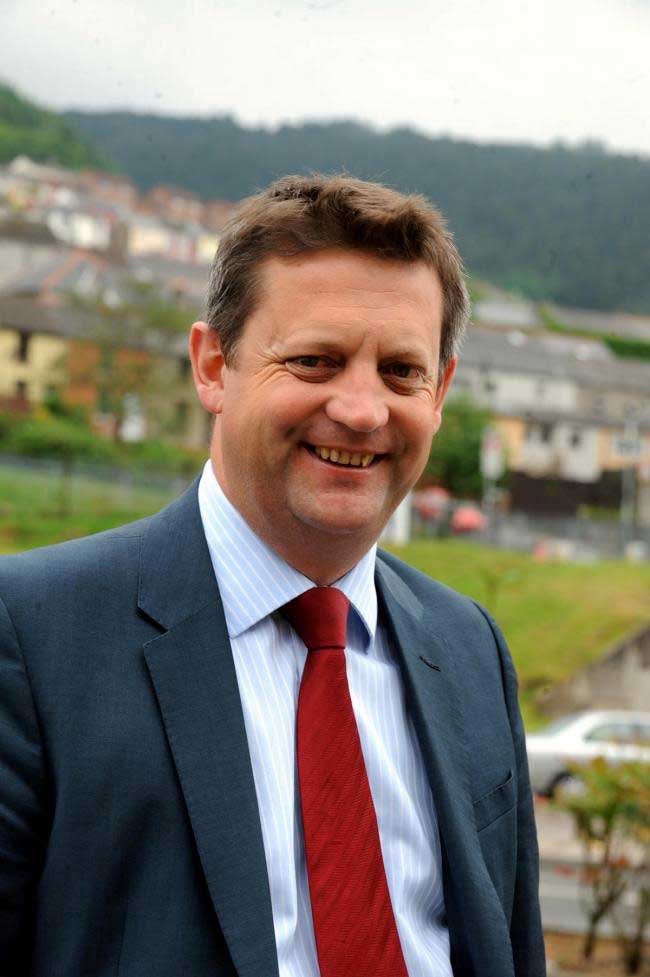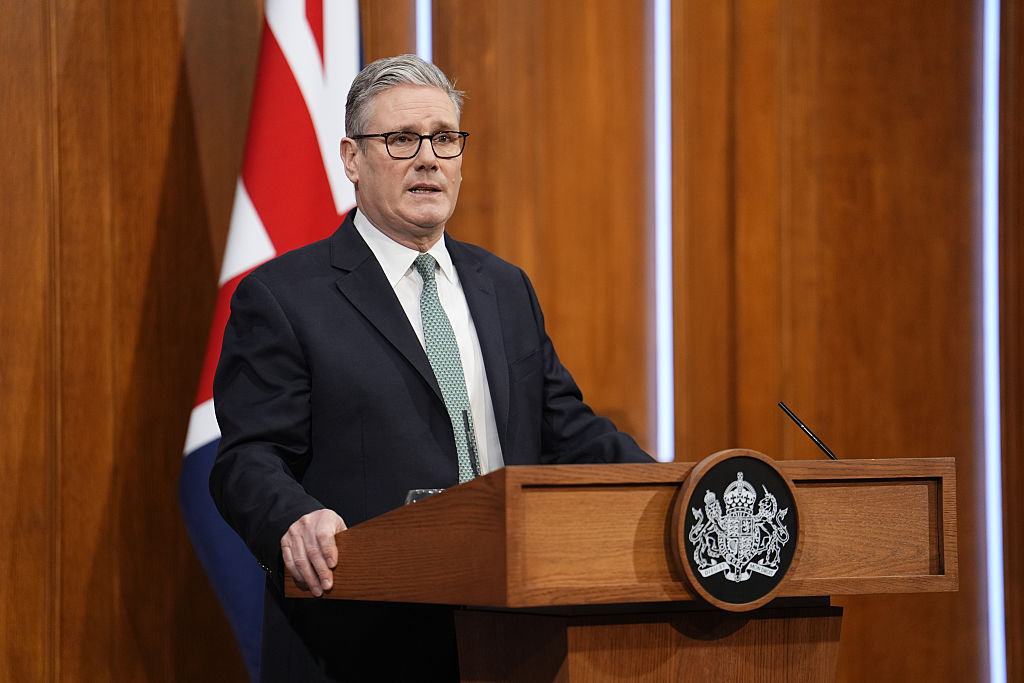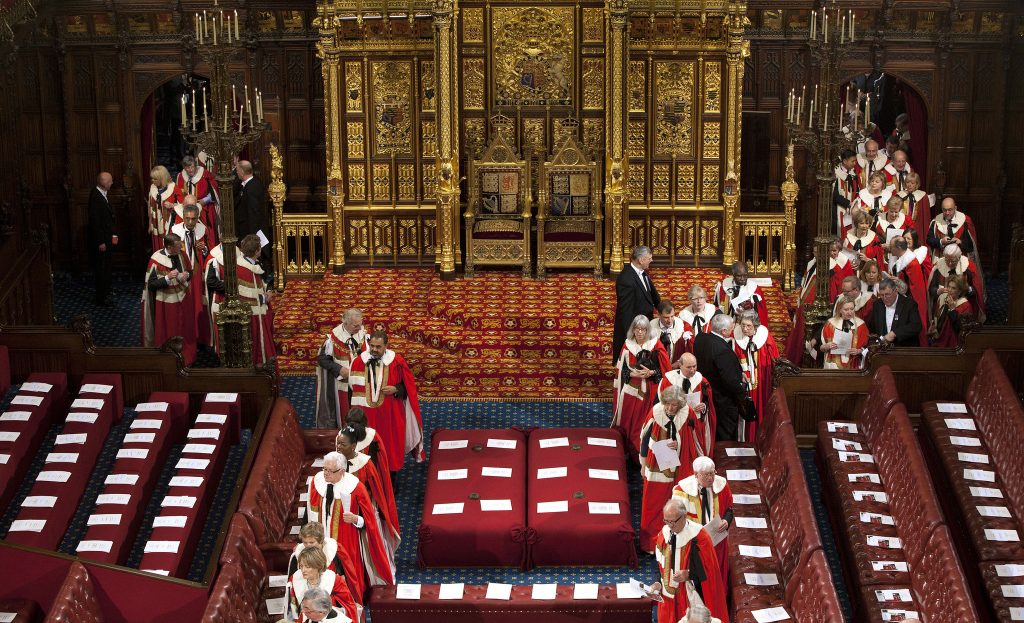Politics
Time for a new relationship with local government

I LIKE to think that I’m not often lost for words in the Chamber. But during my oral questions session the other week, Plaid’s spokesperson, Sian Gwenllian, asked me a question that momentarily left me like a goldfish gasping for breath.
Sian asked me what would be my style as a minister. I guess that she wanted to know whether I’d be more Leighton or Mark. Whether I would seek to impose a policy or seek a consensus. I have no idea whether my response pleased her or not. But it was a good question and it has led me to think again how I would answer the question.
Over the years successive ministers have tried several different approaches and styles. Local government leaders have been flattered, cajoled, persuaded and been drawn into temptation by a whole feast of ministerial offerings. This is certainly one area of policy where there have been an embarrassment of riches with a whole government full of green papers, white papers, commissions and strategies and speeches and statements.
What all of this earnest activity has in common is that it has all failed to deliver any meaningful reform of either the structures or ways of working in local government. It has failed to deliver change or reform and it has failed to create a consensus on the shape of what any reform may actually look like. Maps have come and gone. Footprints debated and heads nodded. Within a month of my own appointment I was told at the WLGA’s seminar in Cardiff in no uncertain terms to put away the Bill and the policy that I had inherited only a couple of weeks previously.
And no report from the WLGA seminar would be complete without mention of Newport’s Debbie Wilcox who has taken the organisation by the scruff of the neck. Her powerful speech set the tone for the day and impressed all of us with her emphasis on the value and importance of localism within the devolved context.
And it was this speech which first helped me to understand that times are changing.
As well as telling me that the inherited policy of mandated regional working wasn’t a runner I was also told that the current shape and structure of local government is not sustainable. And it is this latter point that has dominated my conversations with local government leaders since November.
In my initial conversations I see a generation of leaders committed to their communities and to local government as a powerful and dynamic shaper of those communities. These are people that understand only too well that the failure to agree on an approach to local government policy reflects poorly on everyone – local government and Welsh Government. Repeating the word ‘no’ during difficult times engenders neither confidence nor conviction.
Since taking office I have tried to spend time talking with people. From the wonderful Guildhall in Swansea to the marvellous civic centre in Newport and a former cell in Caernarfon I have discussed and enjoyed the creative force of leaders with drive and energy and a determination to lead change. And I am left with the absolute belief that local government has the vision and the ambition to transform our communities. And to deliver on this vision they need the powers and the freedoms to chart their own courses.
So what is the role for Welsh Government? Great efforts have been made recently to re-build and re-set the relationship and there is certainly a sense that things have improved significantly. We need to build on these firm foundations. For me it is time that Welsh Government joined the debate over the future of local government with a degree of humility rather than an over-large helping of hubris. Too often in the past the tone from Welsh Government has been hectoring, arrogant and policy expressed in intemperate language with criticism that has been unwarranted and unjustified.
Perhaps it’s time for the Government to say sorry and to start again.
So this brings me to answer Sian’s question.
In resetting the relationship between the Welsh Government and local government we need to root our approach firmly in the values of local democracy. A belief in not only civic pride but in local government and local decision-making rather than the local administration of national priorities. A belief that local government leaders and strong councils are better able to deliver excellent public services and to protect the interests of public service workers than a series of instructions from the Bay.
So I have written to all local government leaders asking them for their ideas for powers that should be provided to local government. What are the freedoms and flexibilities that they need to deliver on their mandates and ambitions? I will publish the answers and will publish a route map to deliver those new powers.
But I cannot travel on this journey alone.
The new powers alone will not provide all the answers to the question of sustainability that were so powerfully put back in November. The leader of a rural authority told me last week of the reductions they were making – hundreds of jobs lost over the last few years. And it is this erosion of the public workforce with its inevitable impact on services provided and the terms of service for those who keep their jobs that worries me most. No-one is a winner today. And no-one that I have met wants more of the same.
So the Welsh Government needs to change its approach and to provide for a new relationship. And that also means a new tone. A tone rooted in the respect for local mandates and the pressures faced by local councillors and public service workers. A tone and an approach which seeks to build together a joint venture to provide local authorities with the new powers they need. And then we need to build together the structures that will enable authorities to deliver on those new powers.
It may well be the case that after nearly two decades of devolved government that our democracy is maturing and that the relationship between a more powerful Welsh parliament and more powerful local authorities will be one where we can learn to govern together as a single Welsh public service and leave the arguments and negative debates in the past.
I certainly hope so.
This article appeared originally on the personal blog of Alun Davies AM and is reproduced with his kind permission.
Alun Davies is the AM for Blaenau Gwent and the Cabinet Secretary for Local Government and Public Services
Business
Bid to convert office space into chocolate factory, salon and laundrette

A CALL for the retrospective conversion of office space previously connected to a Pembrokeshire car hire business to a chocolate factory, a beauty salon and a laundrette has been submitted to county planners
In an application to Pembrokeshire County Council, Mr M Williams, through agent Preseli Planning Ltd, sought retrospective permission for the subdivision of an office on land off Scotchwell Cottage, Cartlett, Haverfordwest into three units forming a chocolate manufacturing, a beauty salon, and a launderette, along with associated works.
A supporting statement said planning history at the site saw a 2018 application for the refurbishment of an existing office building and a change of use from oil depot offices to a hire car office and car/van storage yard, approved back in 2019.
For the chocolate manufacturing by ‘Pembrokeshire Chocolate company,’ as part of the latest scheme it said: “The operation comprises of manufacturing of handmade bespoke flavoured chocolate bars. Historically there was an element of counter sales but this has now ceased. The business sales comprise of online orders and the delivery of produce to local stockist. There are no counter sales from the premises.”
It said the beauty salon “offers treatments, nail services and hairdressing,” operating “on an appointment only basis, with the hairdresser element also offering a mobile service”. It said the third unit of the building functions as a commercial laundrette and ironing services known as ‘West Coast Laundry,’ which “predominantly provides services to holiday cottages, hotels and care homes”.
The statement added: “Beyond the unchanged access the site has parking provision for at least 12 vehicles and a turning area. The building now forms three units which employ two persons per unit. The 12 parking spaces, therefore, provide sufficient provision for staff.
“In terms of visiting members of the public the beauty salon operates on an appointment only basis and based on its small scale can only accommodate two customers at any one time. Therefore, ample parking provision exists to visitors.
“With regard to the chocolate manufacturing and commercial laundrette service these enterprises do not attract visitors but do attract the dropping off laundry and delivery of associated inputs. Drop off and collections associated with the laundry services tend to fall in line with holiday accommodation changeover days, for example Tuesday drop off and collections on the Thursday.
“With regard to the chocolate manufacturing ingredients are delivered by couriers and movements associated with this is also estimated at 10 vehicular movements per week.”
The application will be considered by county planners at a later date.
Politics
Ceredigion council tax expected to rise by 4.7 per cent

A BETTER financial settlement for Ceredigion from the Welsh Government along with a fresh grant is expected to see council tax bills in the county rising by less than five per cent this year, far below previous fears of a rise as high as nearly nine.
Last year, for the 2025-’26 budget, Ceredigion saw a council tax rise of 9.3 per cent.
While council tax makes up a proportion of the council’s annual revenue, a crucial area of funding is the Aggregate External Finance (AEF) rate from Welsh Government.
Ceredigion was to receive a 2.3 per cent increase on its settlement, some £3,388,000 for a total of £150,670,000, placing it at joint 13th of the 22 local authorities in Wales.
Following a later Welsh Government and Plaid Cymru agreement additional funding for local government was secured, giving Ceredigion additional funding.
Back in November, before the increased settlement was announced, Ceredigion Leader Cllr Bryan Davies said that early estimates indicated that an 8.9 per cent increase in council tax would be necessary, but an improved position of 6.9 per cent had been indicated as a result of a further modelling of service cost pressures and operational savings.
Following the improved settlement, members at the January meeting of Cabinet heard from Cabinet Member for Finance and Procurement Services Cllr Gareth Davies a recommendation for a 4.75 per cent council tax increase as part of a draft budget requirement of £221.493m was being mooted.
That position has improved again, following financial support towards the Mid and West Wales Fire Service Levy, members of the February 3 meeting of the council’s corporate resources overview and scrutiny committee heard, the funding now dropping the expected council tax increase to 4.7 per cent, equivalent to an extra £7.39 per month for the average Band D property for the next financial year.
Members of the committee agreed to note the 4.7 per cent figure, with the final council tax recommendation being considered by Cabinet on February 10; the final decision on the budget being made by full council on March 2.
international news
Mandelson quits Lords amid police probe over Epstein links

Peter Mandelson has announced he will retire from the House of Lords with immediate effect, as mounting political and legal pressure grows over claims he shared sensitive government information with convicted sex offender Jeffrey Epstein.
Parliamentary officials confirmed that Peter Mandelson formally notified the Clerk of the Parliaments of his decision, ending his membership of the upper chamber from Tuesday (Feb 4).
The move follows reports that the Metropolitan Police Service is reviewing allegations of possible misconduct in public office connected to emails said to have been forwarded to Epstein while Mandelson was business secretary during the 2008–09 financial crisis.
Downing Street has confirmed that material has been passed to police after an initial Cabinet Office review.
Government fury

Prime Minister Keir Starmer told cabinet colleagues Mandelson had “let his country down”, according to No 10, and officials are now drafting legislation that could strip him of his peerage entirely.


Removing a life peer is rare and would require an Act of Parliament.
If passed, Mandelson would lose the title “Lord” altogether — an extraordinary step that has only been considered in the most serious cases.
Senior ministers have described the alleged passing-on of market-sensitive government discussions as “disgraceful” and a “betrayal of trust”.
What police are examining
Misconduct in public office is a centuries-old common law offence that applies where someone in a position of public trust wilfully abuses that role. It carries a maximum sentence of life imprisonment.
Investigators will assess whether confidential information — particularly relating to government financial policy during the crash — was shared without justification and whether safeguards were breached.
At this stage, no charges have been brought.
Mandelson has previously apologised for maintaining contact with Epstein after the financier’s conviction, saying he regrets “ever having known him”, but he has disputed some of the latest claims and has not commented directly on the police review.
Political shockwaves
Opposition parties are pushing for further disclosure of documents relating to Mandelson’s vetting and his past roles.
Conservatives are expected to force a Commons vote demanding more information, while Liberal Democrats have called for a public inquiry.
Several MPs have also suggested Mandelson should be removed from the Privy Council.
The developments mark a dramatic fall for one of Labour’s most influential political figures of the past three decades, who only months ago was serving as the UK’s ambassador to Washington.
Now, with police examining evidence and legislation being prepared to remove his title, his public career appears effectively over.
More updates are expected as the investigation continues.
-

 Health6 days ago
Health6 days agoConsultation reveals lack of public trust in health board
-

 News7 days ago
News7 days agoCaldey still unsafe, survivors warn — despite Abbey’s reform claims
-

 Community7 days ago
Community7 days agoPembrokeshire students speak at national Holocaust Memorial Day event
-

 News19 hours ago
News19 hours agoPrincess of Wales visits historic Pembrokeshire woollen mill
-

 News7 days ago
News7 days agoKurtz raises Gumfreston flooding in the Senedd as petition deadline nears
-

 Crime5 days ago
Crime5 days agoPembroke man accused of child sex offences sent to Swansea Crown Court
-

 Education7 days ago
Education7 days ago‘Vulnerable teen’ questioned by police at Milford Haven School
-

 Education7 days ago
Education7 days agoAttendance concerns at Milford School reflect wider issue raised at the Senedd









































